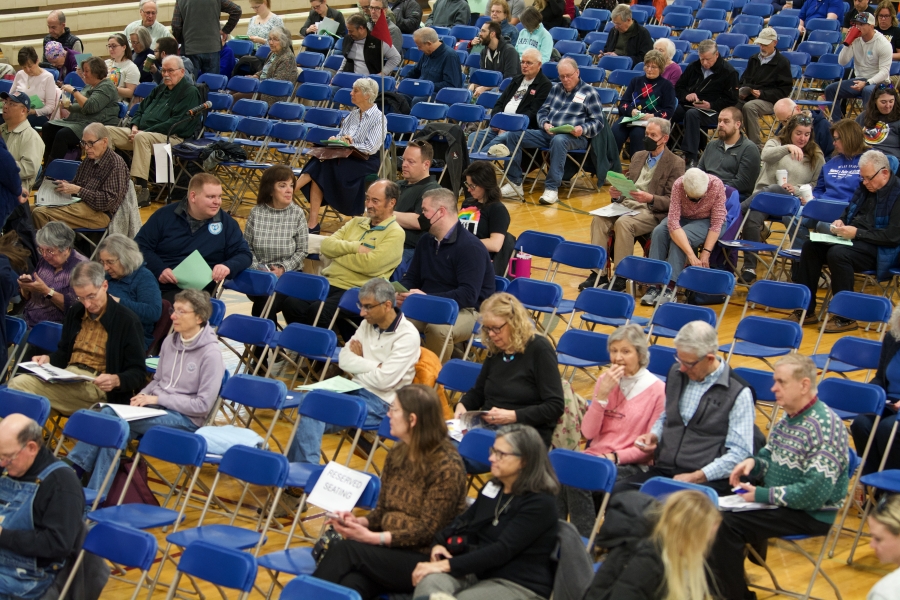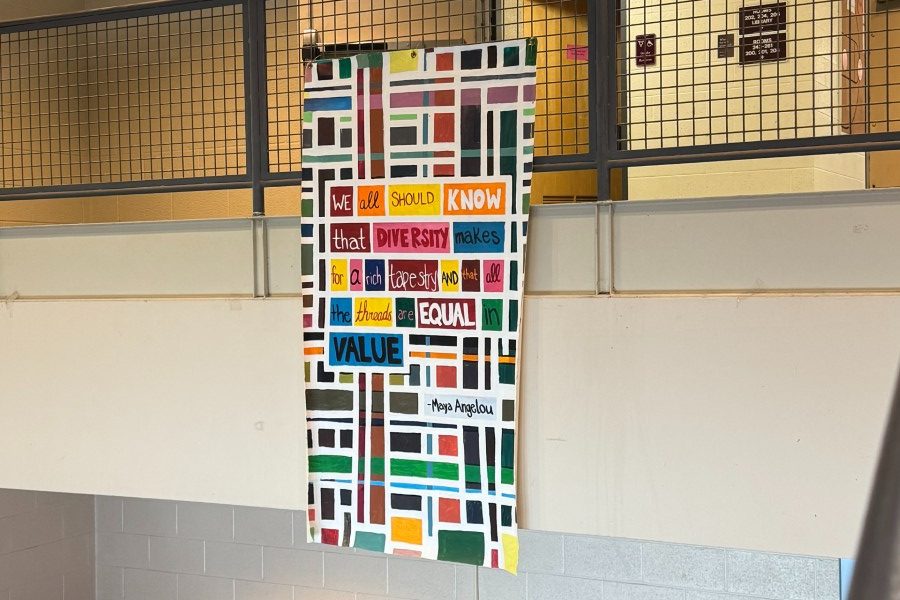Due to the failure of the override of Proposition 2 ½ at the May 7 Town Election, Westford Academy and the Westford Public Schools will be facing severe budget cuts and reductions. However, according to Principal Dan Twomey, WA’s administration is working to ensure that the needs of students remain at the forefront of their decisions for the upcoming school year.
“Westford Academy is still going to be a wonderful school, and we’re still going to do everything we can to drive the best educational model […] based on what student interests are,” Twomey said.
WA will be facing a reduction of 13.4 full time employees, which is approximately 10% of the teaching staff, six courses, and a reduced number of class sections running for each course. All of this will factor into universal growth in class sizes. Currently, the courses that will not be running in the 2024-2025 school year are Mandarin IV, Latin I, French I, Painting I and II, and Foundations of Art II.
Due to shifting plans and the reorganization of classes, the process of creating student course loads has been pushed two weeks behind schedule. The process of inputting all student requests into an algorithm to find the most widely successful student schedules will remain the same, but the limited class sections and changing class sizes has made it more difficult to accommodate for requirements and elective choices.
“We’ve always had a pretty high success rate for students schedules [in regards to] getting the classes you want and the electives. That will certainly be impacted, but we’re not quite sure of the extent yet,” Twomey said.
Similar to previous years, guidance counselors will be reaching out to students to discuss requests and possible rearrangements of schedules and electives throughout the end of May and June. Students can expect schedules to be released before the end of the school year.
Across the board, the most significant, and possibly detrimental, change will be the increase in class sizes to 23-30 or more students. According to English teacher Brian Mahoney, small class sizes have been an integral part of WA, and are a large reason for the school’s high ranking amongst high schools in Massachusetts.
He also added that several subjects, such as English and social studies, thrive when classes are small due to the discussion based learning that drives the curriculum. With larger class sizes, beneficial aspects of small group discussions will be lost and widespread participation will be a struggle to achieve.
“It’s going be tough for teachers to figure out who’s spoken […] and I do think that certain students who are quiet or whom are more reserved, will be able to hide better because it’s going be such a large group of students that I don’t think teachers are going to be able to catch all their students,” Mahoney said.
Moreover, teachers will be facing a much higher workload which will make grading large papers and projects much more difficult and time consuming. According to Mahoney, still allowing students to practice their writing will be a priority more so than assigning graded projects.
“You get the expense of writing but you may not be getting as much feedback because I just won’t have the time to do that,” Mahoney said. “It is readjusting how many assignments I’m assigning but I have to then get the students to buy into that process.”
In addition, seniority will have a greater effect on course selection than in previous years in order to limit class sizes and allow seniors to earn their remaining required credits. AP Statistics, a math course often taken by sophomores, will only be available for juniors and seniors, and the option to take three science courses in one year will no longer be allowed.
“A lot of schools don’t let sophomores take APs, and I thought it was good that WA let sophomores take at least AP Stats,” sophomore Anushka Chilukuri said. “Now with that taken away, I feel bad for the next sophomores because it is a really interesting class and now they have to try to fit that in with the other classes they want to take as upperclassmen.”
According to Chilukuri, learning that students would be able to double up on science courses was a relief, but not being able to explore as many specific courses to prepare for a future career is still disappointing for many students.
The 2023-2024 was a year of new experiences not just for students, but for Twomey, whose first year as the new principal of WA is coming to a close. This year he was faced with multiple challenges and difficult decisions. Throughout the process, the needs of both students and teachers weighed heavily on his mind.
“I knew we’d be looking at some budget difficulties. [We knew that] this budget was going to be challenging. Education is not like a lot of other things,” Twomey said. “It’s trying to do what’s best for the students, but also have a large faculty here [who] you’re trying to put in the best position to succeed. And, [Westford Academy] has an outstanding academic reputation and I want to keep that going. So that weighs on me, but I’ve learned a lot.”
When students first heard of the cuts that could be taking place, an atmosphere of stress and anticipation filled the building, but, according to Twomey, the work of the guidance counselors, deans, and curriculum coordinators have aided him in creating a plan that leaves many students feeling more optimistic.
Reductions:
The department cuts that will be taking place next year include combining classes, reduced sections, and shifting teachers.
Certain classes in the Foreign Language Department will be undergoing a significant change with several courses combining CP, honors, and AP students into single classes that may exceed 30 students.
WA students who want to switch to Latin or French after entering high school will no longer be able to do so due to the elimination of Latin I and French I. Mandarin IV will also not be running although the other Mandarin classes will continue to be available. The School Committee and WA administration are currently researching ways to allow students to continue pursuing Mandarin in the absence of the class.
Within the English Department, three teachers will be reduced at WA and only one section of the English electives Journalism, Creative Writing, and Film and Literature will be running. As a result, enrollment in the courses will be limited.
In the math department, two teachers will be retiring, class sections of AP Computer Science and Exploring Computer Science will be reduced, and AP Computer Science and Java Honors may be receiving a reduction in prerequisites to allow students more flexibility with scheduling.
One biology teacher and one physics teacher will be reduced in the science department.
As for the Social Studies Department, there will be a reduction of one teacher and only one section of AP Economics, with the number of students in other electives being limited as well.
In the Art Department, one teacher will be reduced, and in the Music Department, one teacher will be moving to a position at Stony Brook Middle School a chorus ensemble course, a band ensemble course, and an orchestra ensemble course will be replacing specific electives.
Other changes include one Library Media Specialist being transferred to an elementary school position, and research and citation lessons and access to library spaces being significantly reduced.
Multiple teachers across departments will be shifting the classes they will be teaching. Thus far, a math teacher will be moving to teach Computer Science, and a science teacher will be teaching both physics and chemistry.
Going forward, Twomey hopes to foster strong relationships between students and staff through larger classes, minimize teacher burnout, and ease student worries. Although adapting to larger class sizes and the 10% loss of WA staff will be a daunting task, Twomey believes that the WA community will persevere and continue to create an environment that fosters growth and exploration.
“My biggest goal is continuing to make WA the excellent academic institution it is […]. I also want to continue to do everything we can for students’ and teachers’ emotional well-being,” Twomey said. “I know this year has been different for students [but] I will continue to do what’s in their best interests. This place is going to be okay; we’re going to be okay.”
Ultimately, the students and staff are the heart of WA and though significant aspects of the community are being endangered, the attitudes of the people within this community will determine the future of the school.
“I think that what we need to do as a school is come together. If students and teachers are staying positive, we can grow like a stone that you drop into still water, letting the ripples of positivity spread,” Mahoney said. “When people face adversity together, they come together in rich ways. I think there’s strength in that so I have hope for this community for sure.”









